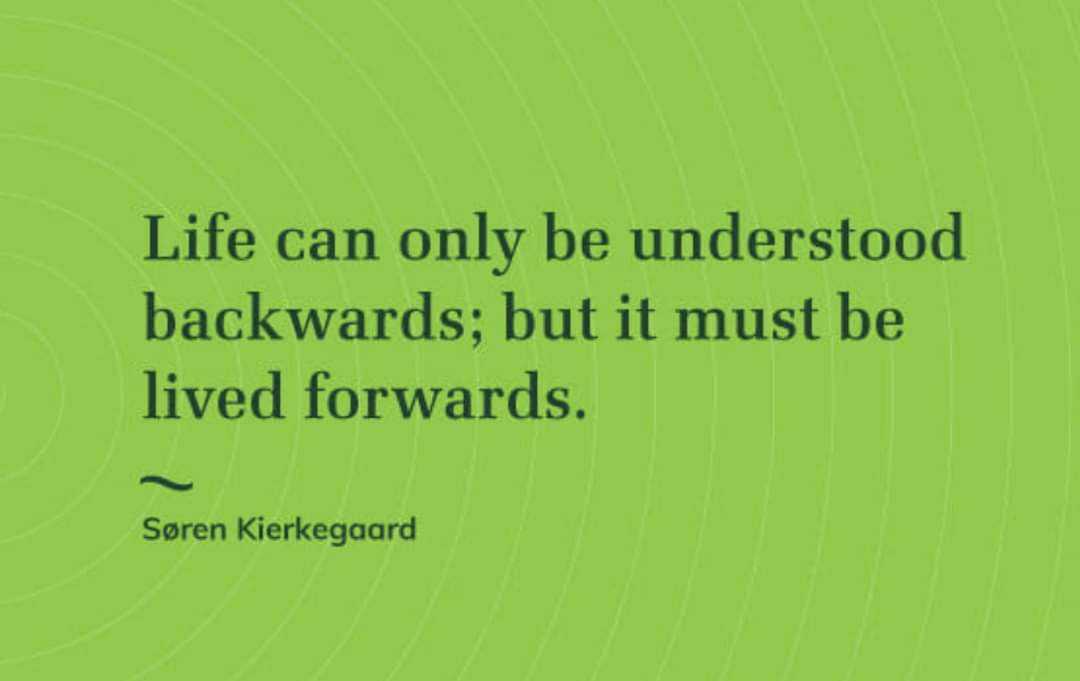دریافت پوسٹسہمارے Discover صفحہ پر دلکش مواد اور متنوع نقطہ نظر کو دریافت کریں۔ تازہ خیالات کو اجاگر کریں اور بامعنی گفتگو میں مشغول ہوں۔
https://www.globalresearch.ca/....top-10-creepiest-mos
The World Economic Forum (WEF) is one of the most powerful organizations in the world. And, throughout the years, people at the WEF have said some truly insane and dystopian things. And they’ve managed to word these things in the creepiest ways possible. Here are the top 10 most insane things said by the WEF.
When one talks about the “global elite”, one usually refers to a small group of wealthy and powerful individuals who operate beyond national borders. Through various organizations, these non-elected individuals gather in semi-secrecy to decide policies they want to see applied on a global level.
The World Economic Forum (WEF) is smack dab in the middle of it all. Indeed, through its annual Davos meetings, the WEF attempts to legitimize and normalize its influence on the world’s democratic nations by having a panel of world leaders attending and speaking at the event.
A simple look at the list of attendees at these meetings reveals the organization’s incredible reach and influence. The biggest names in media, politics, business, science, technology, and finance are represented at the WEF.
attendees The Top 10 Creepiest and Most Dystopian Things Pushed by the World Economic Forum (WEF)
Page 34 (out of 58) of the list of attendees at the 2022 Davos meeting. Big names, big companies, big influence.
According to mass media, the Davos meetings gather people to discuss issues such as “inequality, climate change, and international cooperation”. This simplistic description appears to be custom-made to cause the average citizen to yawn in boredom. But topics at the WEF go much further than “inequality”.
Throughout the years, people at the WEF have said some highly disturbing things, none of which garnered proper media attention. In fact, when one pieces together the topics championed by the WEF, an overarching theme emerges: The total control of humanity using media, science, and technology while reshaping democracies to form a global government.
If this sounds like a far-fetched conspiracy theory, keep reading. Here are the 10 most dystopian things that are being pushed by the WEF right now. This list sorted is in no particular order. Because they’re all equally crazy.
#10 Penetrating Governments
The least one can say is that Klaus Schwab, the founder and the head of the WEF is not a fan of democracy. In fact, he perceives it as an obstacle to a fully globalized world.
In the 2010 WEF report titled “Global Redesign”, Schwab postulates that a globalized world is best managed by a “self-selected coalition of multinational corporations, governments (including through the UN system), and select civil society organizations (CSOs)”. This is the exact opposite of a democracy.
He argued that governments are no longer “the overwhelmingly dominant actors on the world stage” and that “the time has come for a new stakeholder paradigm of international governance”. For this reason, the Transnational Institute (TNI) described the WEF as “a silent global coup d’état” to capture governance.
In 2017, at Harvard’s John F. Kennedy School of Government, Schwab blatantly admitted what is continually dismissed as a “conspiracy theory” by mass media: The WEF is “penetrating” governments around the world.
CONTINUED ON ABOVE SITE /////
https://www.globalresearch.ca/....human-rights-violati
Human Rights Violations by Multinational Corporations: Corruption, Lawlessness and The “Global Value Chain”
Introduction
The debate on human rights violations is invariably limited to those committed by governments and other public institutions.
We seldom discuss human rights violations committed by large corporations, especially multinational corporations (MNCs). Moreover, in many cases, the violation of human rights by host country governments is motivated as a means to cover up MNCs’ human rights abuse.
There is another phenomenon which does not help our resolve to acquire a solution to the issue of corporate human rights abuse; it is the biased attitude of the Western media regarding these corporate violations.
The media seldom report the incidence of corporate human rights violations, most likely due to the fact that they themselves are owned by large corporations.
Public debate on the issues of corporate human rights violations is vitally important not only in relation of global justice but also for the health of the global economy, especially for the survival of the economies of developing countries.
We need also to conduct an ideology-neutral and unbiased debate on the long-run impact of MNCs’ human rights violations on the developing countries.
This article deals with the following issues.
First, this paper will show how large, rich and powerful the MNCs are and how they can easily abuse human rights, damage the environment and destroy the economies of developing countries.
Second, this paper will discuss the types of human rights violated by MNCs. It will be shown that in many cases, the MNC violates both the economic, social and cultural rights (ESCR) and the civil and political rights (CPR).
Third, in this section, this paper will discuss how and why the current national and international judiciary regimes are not equipped for dealing effectively human rights violations by MNCs.
Wealth and Power of MNCs
One of the significant phenomena of the last half a century has been the rise of huge global corporations called, multinational corporations (MNCs), which have impacted deeply not only the global economic system but also the global political dynamics.
The financial assets of 200 largest MNCs is larger than the combined assets of all countries of the world excluding 10 largest economies. According to data of the Amnesty International, of 100 largest economies in the world, 51 are corporations, namely MNCs, while 49 are Nation States.
What is more surprising is the fact that, despite their huge size, they grew fast; their profit rose between 1983 and 1999 by 36% as against the profit of the global economy which rose by 25%.
According to UNCTAD data, MNCs account for 70 % of the world trade.
Given the sheer size of MNCs, it is not difficult to imagine the huge impact of their human rights violations on social and economic justice and the well-being of the people.
CONTINUED ON WEBSITE//////
What’s Not Being Said About the Pfizer Coronavirus Vaccine. “Human Guinea Pigs”?
Read this on GlobalResearch.ca (https://www.globalresearch.ca/....what-not-said-pfizer
NATO Learns Nothing and Forgets Nothing
Read this on GlobalResearch.ca (https://www.globalresearch.ca/....nato-learns-nothing-
Constitutional Change Could be Catastrophic
Reignite Democracy Australia
August 9, 2022
10:38 am
One Comment
The following article from Spectator Australia
The Albanese government has revived the push for a republic in Australia. Labor’s surprise push comes 23 years after the electorate rejected a republic in a referendum, followed up by a lack of enthusiasm among many (even among Labor voters) for a second referendum on the subject.
Regardless, republicans believe that their moment has come, spurred on by fashionable causes and a push for republics in Commonwealth nations which has seen Barbados become a republic last year.
The Australian people have every right to be cynical about any renewed push for a republic, or any form of constitutional change. The slogan, ‘No to the Politicians’ Republic!’ resonated in 1999 and it still resonates today. Neither is it uniquely Australian for voters to suspect that the agenda behind constitutional change is never in the interest of the people and the nation, but purely in the interests of politicians and lobbyists who agitate for them.
In Ireland in 2013, voters rejected a proposal to abolish the upper house, the Seanad, which the government was in favour of doing. They may well have suspected that, as with the republic push in Australia, it was an ill-considered and dangerous idea that was far more for the benefit of politicians than the general public. Voters in Italy also rejected constitutional reform in even more auspicious circumstances in 2016.
Radical constitutional changes and the abolition of monarchies are by no means guaranteed to win the support of a majority of the electorate when proposed. Most Commonwealth nations that became republics did so without the political class asking the people at a referendum if they wanted it.
Sri Lanka, whose government and economy is in a state of collapse, is a case in point about the dangers of fashionable constitutional reform. Apart from the change of the country’s name from Ceylon to Sri Lanka in 1972, the change to a republic under a new constitution that year began a grim process of increasingly abusive and authoritarian governance. This continued, with another new constitution in 1978 creating a powerful executive presidency. Those constitutions were designed for the benefit of those in power, following what was then fashionable in the postcolonial atmosphere. And Sri Lankans, regardless of ethnicity and religion, are today paying the price for the self-interest of politicians and the degradation of governance resulting.
In South Africa, the National Party’s push for a republic succeeded in 1960 only after a quite narrow referendum win, and a determined anti-republican campaign, especially in mostly English-speaking Natal (dubbed the ‘Last Outpost of the British Empire’). The campaign played to fears that the NP was taking South Africa in an increasingly authoritarian direction and would further isolate the country. When PW Botha enacted a new constitution in the 1980s, he followed the Sri Lankan case of transforming a parliamentary system into one with an executive presidency, even as his reforms were to lead to the dismantling of Apartheid. Post-Apartheid South Africa adopted a highly idealistic constitution, far from reflective of the realities on the ground in what is also becoming a failed state.
It is inevitable that any plans to replace Australia’s current constitution will be influenced by trends among our elites which will bring a dose of Woke idealism. And such will have dangerous implications for our democracy, freedom, and rule of law – and if they’re successful, could create a grim precedent for other Western democracies and especially English-speaking ones.
Constitutional tinkering is rightly met with cynicism from electorates who believe they are not being told the truth, that the push for new constitutions masks an agenda tied to political and cultural fashion, political and lobbying self-interest as opposed to the needs and interest of the nation and its people.
Will New Zealand be the Next Member of AUKUS? Towards the Formation of An “Asia-Pacific NATO”?
Read this on GlobalResearch.ca (https://www.globalresearch.ca/....no-one-should-surpri









